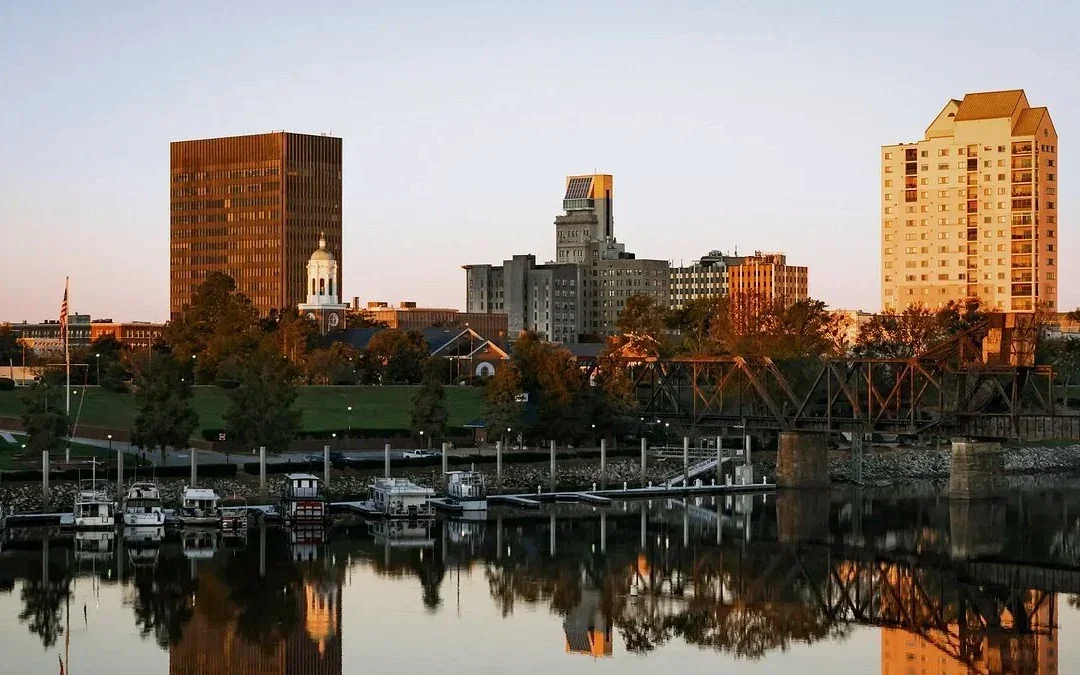In an era when President Woodrow Wilson’s name has been removed from his beloved Princeton University, Historic Augusta Inc. continues in its mission to educate the public about America’s 28th president.
While many presidential scholars regard Wilson as an above average president, the legacy of racial segregation and institutionalized racism of his era remains a stain on the modern memory of the man who presided over the conclusion of World War I, advocated women’s suffrage and ended child labor.
Eric Montgomery, director of Historic Augusta Inc., concedes that Wilson was a racist by modern standards but says that it is unfair to view his life under a modern lens and blame him for the cultural mores of his time. Montgomery says it is more important to study the turbulent events that happened in Wilson’s lifetime to fully understand the man.
MORE: Something You Might Not Have Known: George Walton
[adrotate banner=”55″]
“Everyone was racist then. That is just a fact. More importantly, though, Wilson was paternalistic. He thought he was doing things that were in everyone’s best interest, and he certainly got that paternalistic attitude from his father,” Montgomery said.
Indeed, Wilson’s father, Joseph Ruggles Wilson, was the typical fiery southern Presbyterian minister and taskmaster. According to Mongomery, Joseph Wilson would intentionally use scholarly words in conversation, and when young “Tommy” would ask the meaning of a word, his father would instruct him to look it up in the dictionary.
Joseph Wilson became a notable person in the years leading up to the Civil War after a sermon he delivered at Augusta’s First Presbyterian Church, which was a defense of slavery published throughout the South.
There is no evidence that the Wilson household ever owned a slave; however Joseph Wilson firmly believed that slavery was ordained by God and used the Holy Bible to prove it. The text of the sermon shows that Woodrow Wilson lived under a domineering father.
“The hireling, the wife, the eldest child, the dependent stranger, may be the voluntary or involuntary doer of offices which must fall to the lot of some one,” Joseph Wilson wrote in his sermon.
Woodrow Wilson would carry that paternalistic outlook into adulthood, and it is likely that he came to see himself as the father figure of the entire nation.
MORE: Something You Might Not Have Known: The USS Augusta
While Wilson did allow for segregation within the federal bureaucracy, his view of Jim Crow laws was that they were a matter to be left up to the individual states. In Wilson’s time, there was no FBI around to brand the Ku Klux Klan an interstate terrorist organization and try to control the group’s lawless behavior.
There is no evidence anywhere to show that Wilson was a supporter or sympathizer of the KKK, although he never rebuked the group publicly, which Montgomery says was a terrible mistake, even for the time.
[adrotate banner=”25″]
Wilson critics claim that his decision to allow a screening of D.W. Griffith’s film “The Birth Of A Nation” at the White House proves he was more than just a passive racist. Over time, a purported quote from Wilson has been featured in scores of books and is still widely circulated on the internet.
“It is like writing history with lightning. My only regret is that it is all so terribly true,” Wilson is quoted as saying of the film.
Except that Wilson never uttered those words, at least not in public.
Historian Mark E. Benbow writes in his peer reviewed article titled “Birth of a Quotation: Woodrow Wilson and ‘like writing history with lightning’” that the lightning phrase was used in advertisements for the film, but it was not attributed to Wilson himself.
Still others maintain the mere fact that Wilson allowed the film to be screened at the White House was, in itself, an endorsement; but there is more to that story as well, according to Benbow.
The writer of the play on which the film was based, Thomas Dixon Jr, was a casual acquaintance of Wilson and had at first asked Wilson to watch the film in a theatre. However, Wilson was still in official mourning after the death of his wife Ellen and did not think a night out at the theatre was appropriate.
Instead, the filmmakers asked for the White House screening, and Wilson obliged.
Witnesses at the screening said, according to Benbow, that rather than applauding the film at its conclusion, Wilson wadded up his program, left it in a chair and walked out of the room without saying anything.
While the extent of Wilson’s racism is debatable, his revulsion to war is not.
[adrotate banner=”51″]
Wilson hated war.
According to Montgomery, Wilson was but a lad of five when the Civil War erupted. As the war dragged on, the city of Augusta was converted into a hospital city and nearly all churches, including First Presbyterian, became was with wounded and dying soldiers.
Wilson never forgot the carnage he saw as a youth.
As president, Wilson had absolutely no intention allowing the United States to enter into what was being called “the Great War.” In fact, Wilson is credited with creating the modern political slogan by running under the banner of “he kept us out of war.”
The British and French tried desperately to use the sinking of the RMS Lusitania by a German submarine to involve America in the conflict, but Wilson would not budge.
It was only when Germany attempted to goad Mexico into invading the United States and resumed unrestricted submarine warfare against even neutral shipping that Wilson’s hand was forced. However, in asking for a declaration of war against Germany, Wilson made it clear his intention was to end the war quickly and prevent such a disaster from ever occurring again.
Unfortunately, when the bloodshed finally ended in 1918, Britain and France remained committed to seeing Germany punished. Russia, which was an ally, was not invited to participate in the treaty negotiations at Versailles, and Wilson along with his delegation were largely sidelined.
Wilson’s 14 Points plan favored a conciliatory approach meant to prevent any more European conflicts from boiling over into another world war. Wilson was ignored and crushing reparations were demanded from Germany which almost guaranteed the rise and eventual takeover of the NAZI party in Germany.
Wilson warned that an even more terrible war might be fought within a generation.
Sadly, if the Europeans had only taken Wilson’s fatherly advice, World War II may have never happened.
…And that is something you might not have known.
For those interested in learning more about Wilson, his boyhood home, located at 419 Seventh Street, will hold a series of candlelight tours on Friday Dec. 3 and Saturday Dec. 4. The tours, which will be held between 5 p.m. and 6:30 p.m., will feature music and refreshments along with descriptions of how a young Wilson and his family would have celebrated Christmas.
For more information on the Candlelight tours of the Boyhood Home of Woodrow Wilson, click here.
Scott Hudson is the Senior Reporter for The Augusta Press. Reach him at scott@theaugustapress.com













